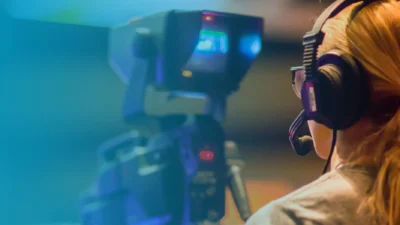The profound impact of social media on public discourse and global perspectives cannot be overstated. Ironically, 38 percent of U.S. adults don’t trust these platforms concerning the protection of their data.
As social media wields unprecedented influence, the debate over their regulation intensifies. Governments worldwide struggle to maintain a regulatory balance between fostering innovation and safeguarding societal well-being.
The future landscape of social media remains uncertain, prompting a collective call for responsible innovation that creates a digital space where democratic principles resonate while fostering connectivity and innovation.
This article sheds light on the realities that make this possible, focusing on the intricate interplay of free speech, misinformation, and the responsibilities of tech giants, unfolding the multifaceted dimensions of this contentious issue.
The Ethics of Moderating Content
One of the pivotal challenges social media platforms face is the ethical dilemma of content moderation. Striking a balance between allowing diverse opinions and preventing the dissemination of harmful content is a delicate task.
The subjective nature of what constitutes offensive or inappropriate material complicates this process, often leading to accusations of bias and censorship. As these platforms grapple with enforcing community guidelines, questions arise about the extent to which they should be arbiters of truth and morality.
The Impact on Democracy
Social media’s impact on democracy is a double-edged sword. While these platforms provide a space for civic engagement, they also harbor the potential to manipulate public opinion. The rise of misinformation and the dissemination of fake news have raised alarms about the integrity of democratic processes.
Echo chambers and algorithmic bias further exacerbate polarization, creating environments where individuals are exposed to information that aligns with their pre-existing beliefs. The impact extends beyond political realms, seeping into individual decision-making. This can influence various personal decisions, from choosing a vacation destination to selecting lenders for personal loans. This begs the question of how democracies can thrive in an era where information is a powerful tool easily manipulated on social media.
Unchecked Influence and Consequences
The unchecked influence of social media platforms extends beyond the digital realm, permeating real-world consequences. The spread of misinformation can incite violence, influence elections, and shape public policy.
From the Arab Spring to the spread of conspiracy theories, these platforms have played a pivotal role in amplifying both positive and detrimental outcomes. Understanding the real-world impact of digital discourse is crucial in evaluating the need for regulatory measures to mitigate potential harm.
Regulatory Measures Balancing Innovation With Well-being
Amidst the escalating concerns surrounding social media, calls for regulatory measures are growing louder. Finding that crucial balance between fostering innovation and safeguarding societal well-being is at the heart of this debate.
Governments around the world are grappling with the challenge of crafting regulations that hold tech giants accountable without stifling the creativity and connectivity that social media platforms offer. As discussions evolve, finding common ground becomes imperative to ensure regulations are effective, fair, and uphold the principles of a democratic society.
Ethical Considerations Navigating the Gray Areas
The ethical considerations surrounding social media are riddled with complexities. From privacy concerns to the responsibility of platforms in curbing the spread of misinformation, ethical boundaries often blur in the digital realm.
Striving for transparency, accountability, and user empowerment becomes paramount. As we navigate the gray areas of ethics in social media, a delicate balance must be struck to preserve individual freedoms while safeguarding against the potential harms associated with unbridled digital influence.
A Call for Responsible Innovation
Technological advancements will continue to reshape the digital sphere, and the ethical considerations surrounding these changes will demand ongoing attention. A collective effort is needed from tech companies, policymakers, and users to foster responsible innovation. As we shape the next chapter of social media, it is essential to reflect on the lessons learned and proactively address the challenges that lie ahead.
Recently, UNESCO commissioned a study on citizens across 16 countries where elections are scheduled in 2024. Eighty-five percent of the respondents say they are concerned about the impact of online disinformation, 87 percent believe this is now affecting their country’s politics, and 88 percent are calling for social media regulation as a quick answer to the problem.
Indeed, in the dizzying web of free speech, misinformation, and the responsibilities of tech giants, the regulation of social media emerges as a critical measure. Striking a delicate balance between innovation and societal well-being, ethical considerations, and the impact on democracy is a challenge that demands thoughtful solutions.




